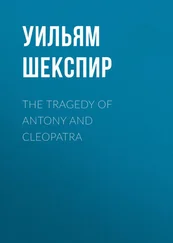Queen Cleopatra waited until the bearers gently set her litter down, then, without waiting for assistance in alighting, she slid lithely out of it and approached the steps of the Roman tribunal.
‘Marcus Antonius, you summoned me to Tarsus. I am here,’ she said in a clear, carrying voice.
‘Your name is not on my roster of cases for today, madam! You will have to apply to my secretary, but I assure you that I will see that your name is first on my list in the morning,’ said Antony with the courtesy due to a monarch, but no deference.
Inside, she was boiling. How dared this clodhopper of a Roman treat her like anyone else! She had come to the agora to show him up as the boor he was, display her immense clout and authority to the Tarsians, who would appreciate her position and not think too well of Antony for metaphorically spitting on her. He wasn’t in the Roman forum now, these weren’t Roman businessmen (all of them had quit the area as unprofitable). These were people akin to her Alexandrian people, sensitive to the prerogatives and rights of monarchs. Mind being pushed aside for the Queen of Egypt? No, they would preen at the distinction! They had all visited the wharf to marvel at Philopator , and had come to the agora fully expecting to find their cases postponed. No doubt Antony thought they would esteem his democratic principles in seeing them first, but that was not how an Eastern cerebral apparatus worked. They were shocked and disturbed, disapproving. What she was doing in standing so humbly at the foot of his tribunal was demonstrating to the Tarsians how arrogant the Romans were.
‘Thank you, Marcus Antonius,’ she said. ‘If perhaps you have no plans for dinner, you might join me on my ship this evening? Shall we say, at twilight? It is more comfortable to dine after the heat has gone out of the air.’
He stared down at her, a spark of anger in his eyes; somehow she had put him in the wrong, he could see it in the faces of the crowd, fawning and bowing, keeping their distance from the royal personage. In Rome, she would have been mobbed, but here? Never, it seemed. Curse the woman!
‘I have no plans for dinner,’ he said curtly. ‘You may expect to see me at twilight.’
‘I will send my litter for you, Imperator Antonius. Please feel free to bring Quintus Dellius, Lucius Poplicola, the brothers Saxa, Marcus Barbatius and fifty-five more of your friends.’
Cleopatra hopped nimbly into her litter; the bearers picked up its poles and turned it around, for it was not a mere couch, it had a head and a foot to enable its occupant to be properly seen.
‘Proceed, Melanthus,’ said Antony to the litigant who the Queen’s arrival had stopped in mid-sentence.
The rattled Melanthus turned helplessly to his highly paid advocate, arms spread wide in bewilderment. Whereupon the man showed his competence by taking up the case as if no interruption had occurred.
It took his servants a while to find a tunic clean enough for Antony to wear to dinner on a ship; togas were too bulky to dine in, and had to be shed. Nor were boots (his preferred footwear) convenient; too much lacing and unlacing. Oh, for a crown of valor to wear upon his head! Caesar had worn his oak leaves for all public occasions, but only extreme valor in combat as a young man had earned him the privilege. Like Pompey the Great, Antony had never won a crown, brave though he had always been.
The litter was waiting. Pretending all this was great fun, Antony climbed in and ordered the bevy of friends, laughing and joking, to walk around the litter. The conveyance was admired, but not as much as the bearers, a fascinating rarity; even in the busiest, most varied slave markets, black men did not come up for sale. In Italia they were so rare that sculptors seized upon them, but those were women and children, and rarely pure-blooded like Cleopatra’s bearers. The beauty of their skins, the handsomeness of their faces, the dignity of their carriage were marveled at. What a stir they would create in Rome! Though, thought Antony, no doubt she had them with her when she had lived in Rome. I just never saw them.
The gangplank, he noted, was gold save for its railings, of the rarest citrus wood, and the faïence deck was strewn with rose petals oozing a faint perfume when trodden upon. Every pedestal that held a golden vase of peacock feathers or a priceless work of art was chryselephantine – delicately carved ivory inlaid with gold. Beautiful girls whose supple limbs showed through tissue-fine robes ushered them down the deck between the columns to a pair of great gold doors wrought in bas relief by some master; inside was a huge room with shutters opened wide to let in every breeze, its walls of citrus wood and marquetry in gorgeous, complex designs, its floor a foot deep in rose petals.
She’s taunting me! thought Antony. Taunting me !
Cleopatra was waiting, dressed now in filmy layers of gauze that shaded from dark amber underneath to palest straw on top. The style was neither Greek nor Roman nor Asian, but something of her own, waisted, flared in the skirts, the bodice fitting her closely to show small breasts beneath; her thin little arms were softened by billowing sleeves that ended at the elbows to allow room for bracelets up her forearms. Around her neck she wore a gold chain from which dangled, enclosed in a cage of finest golden wire, a single pearl the size and color of a strawberry. Antony’s gaze was drawn to it immediately; he gasped, eyes going to her face in astonishment.
‘I know that bauble,’ he said.
‘Yes, I suppose you do. Caesar gave it to Servilia many years ago to bribe her when he broke off Brutus’s engagement to his daughter. But Julia died, and then Brutus died, and Servilia lost all her money in the civil war. Old Faberius Margarita valued it at six million sesterces, but when she came to sell it, she asked ten million. Silly woman! I would have paid twenty million to get it. But the ten million wasn’t enough to get her out of debt, I heard. Brutus and Cassius lost the war, so that took care of one side of her fortune, and Vatia and Lepidus bled her dry, which took care of the other side.’ Cleopatra spoke with amusement.
‘It’s true that she’s Atticus’s pensioner these days.’
‘And Caesar’s wife committed suicide, I hear.’
‘Calpurnia? Well, her father, Piso, wanted to marry her to some mushroom willing to pay a fortune for the privilege of bedding Caesar’s widow, but she wouldn’t do it. Piso and his new wife made her life a misery, and she hated having to move out of the Domus Publica. She opened her veins.’
‘Poor woman. I always liked her. I liked Servilia too, for that matter. The ones I loathed were the wives of the New Men.’
‘Cicero’s Terentia, Pedius’s Valeria Messala, Hirtius’s Fabia. I can understand that,’ said Antony with a grin.
While they talked the girls were leading the fascinated group Antony had brought with him to their respective couches; when it was done, Cleopatra herself took his arm and led him to the couch at the bottom of the U, and placed him in the locus consularis . ‘Do you mind if we have no third companion on our couch?’ she asked.
‘Not at all.’
No sooner was he settled than the first course came in: such an array of dainties that several noted gourmands among his party clapped their hands in delight. Tiny birds designed to be eaten bones and all, eggs stuffed with indescribable pastes, shrimps grilled, shrimps steamed, shrimps skewered and broiled with giant capers and mushrooms, oysters and scallops brought at the gallop from the coast; a hundred other equally delectable dishes meant to be eaten with the fingers. Then came the main course, whole lambs roasted on the spit, capons, pheasants, baby crocodile meat (it was superb, enthused the gourmands), stews and braises flavored in new ways, and whole roast peacocks arranged on golden dishes with all their feathers replaced in exact order and their tails fanned.
Читать дальше












